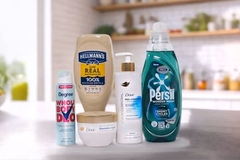Sephora fined for improper hazardous waste management
Key takeaways
- Sephora will pay US$775,000 for improperly managing hazardous and medical waste, including damaged, expired, and returned products.
- Twenty-four city and district attorneys filed the civil enforcement case, and penalties were allocated to civil fines, cost recovery, and environmental training funds.
- The case highlights growing regulatory scrutiny of waste management in the beauty sector, alongside broader sustainability efforts such as circular supply chains and upcycled cosmetic ingredients.

A Sephora branch in California, US, has agreed to pay a US$775,000 fine for improperly managing waste, classified as hazardous or medical, from its retail operations. The ruling underscores regulatory attention to cosmetics retailers’ environmental compliance with hazardous disposals.
The Sacramento County District Attorney’s Office filed a civil enforcement action, saying that the retailer improperly handled the waste of damaged, returned, or expired items that could not be sold. Twenty-four city and district attorneys filed the action.
Sephora will pay civil penalties of US$550,000 and a cost recovery fine of US$200,000. The additional US$25,000 will be paid to the Environmental Enforcement and Training Account, managed by the California Environmental Protection Agency.
Sacramento County will receive a combination of the penalties totaling US$77,730.

“These continued enforcement efforts ensure businesses follow the law when it comes to handling hazardous waste. Our office is committed to protecting both the public and the environment, and we will hold companies accountable to ensure they operate responsibly and within the law,” says Thien Ho, district attorney of Sacramento County.
Circular beauty industry
In other moves for cosmetic compliance in California, the state recently emerged as the first in the country to ban plastic microbeads in leave-on personal care and cleaning products. Assembly Bill (AB) 823, awaiting signature from the governor, was passed by the Senate Floor and will take effect on January 1, 2029.
Personal Care Insights previously reported on how companies are considering circular supply chains to reduce waste and prolong material use before reaching a landfill. Customer preference for goods that reduce overall waste is a key driver in this move.
A recent study found that ionic surfactants, a common ingredient in personal care products, such as laundry detergents, soaps, and shampoos, make treating plastic-polluted water more difficult. These cosmetics spread surfactant pollution through wastewater, treatment plants, rivers, lakes, and drinking water.













